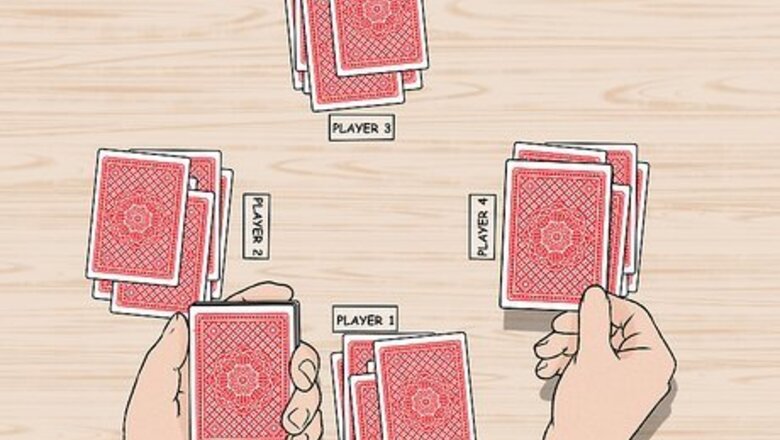
views
Playing Egyptian Rat Screw
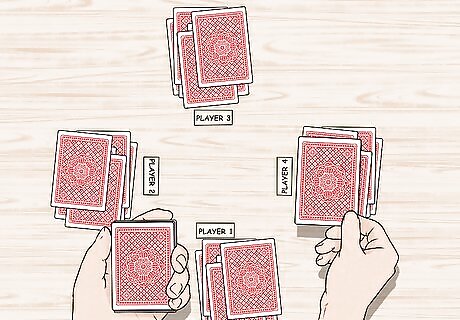
Take a regular deck of playing cards (minus the jokers) and shuffle thoroughly. Pass out the entire deck to the players, face down. Distribute evenly so everyone has the same amount. Players hold their cards face down and are not allowed to look at them. It's okay if some players have slightly more or fewer cards than other players. You can also give experienced players fewer cards (since the deck size is equivalent to "health").
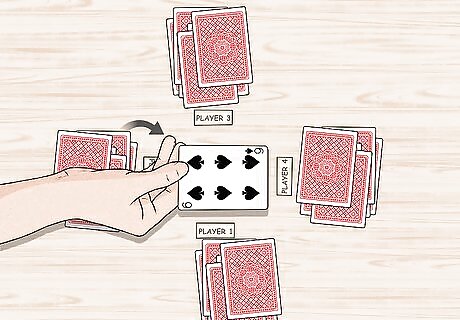
Begin the game. The person left of the dealer goes first by pulling the top card off his/her pile and placing it face-up in the middle. You are not allowed to see your card until it is placed in the middle.
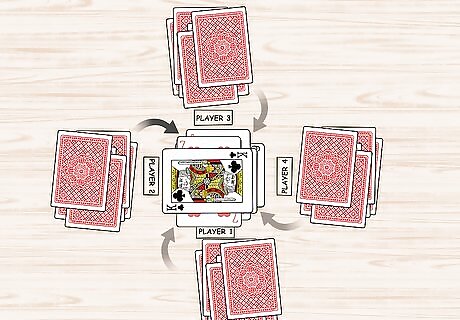
If the card played has a number on it, the person two spaces to the left of the dealer puts down a card, too. This continues around the table until somebody puts down a letter card (J, Q, K, or A).
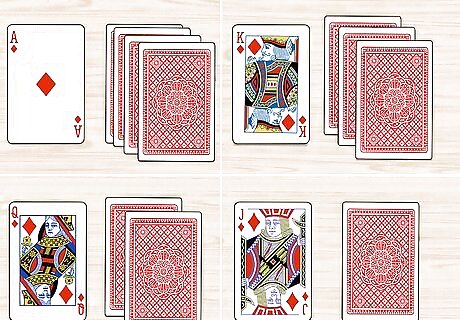
When a letter card is played, the next person in the sequence must play another letter card in order for play to continue. The number of chances they have to play a letter card is determined by the initial letter; you can play up to 4 cards if an ace has been played, 3 for a king, 2 for a queen, and just 1 for a jack. If the next person in the sequence does not play a letter card within their allotted chances, the person who played the last letter card wins the round and the whole pile goes to them. Subsequently, the next round begins with this winning person. If you play with jokers, in some versions, you have to put down 5 cards for a joker. If you do this, then you can't play the jokers slap (look two steps below). Remember, nobody can look at their cards before they're played, so the odds are completely random!
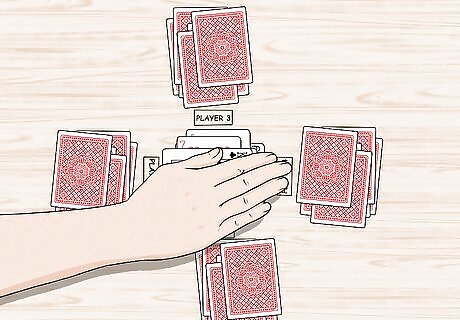
The only thing that overrides the letter card rule is the slap rule. The first person to slap the pile of cards when the slap rule is put into effect is the winner of that round. If it cannot be determined who was the first to slap the pile, the person with the most fingers on top wins. If the tie cannot be resolved this way, play continues normally. Players can also apply the slap rule in these situations: Double: when two cards of equivalent value are laid down consecutively. Ex: 5, 5 Sandwich: when two cards of equivalent value are laid down consecutively, but with one card of different value between them. Ex: 5, 7, 5 Top bottom (or bottoms up): when the same card as the first card of the set is laid down. However, this rule is nullified if a card is burned as a penalty (see below). Tens: when two cards played consecutively (or with a letter card in between) add up to 10. For this rule, an ace counts as one. Ex: 3, 7 or A, K, 9 (sandwich) Jokers: when jokers are used in the game, which should be determined before gameplay begins. Anytime someone lays down a joker, the pile can be slapped. This is only if you're not playing the version where you lay down 5 cards for a joker. Four in a row: when four cards with values in consistent ascending or descending order is placed. Ex: 5, 6, 7, 8 or Q, K, A, 2 Marriage: when a Queen is placed over or under a King (this is considered an optional rule). Ex: Q, K or K,Q
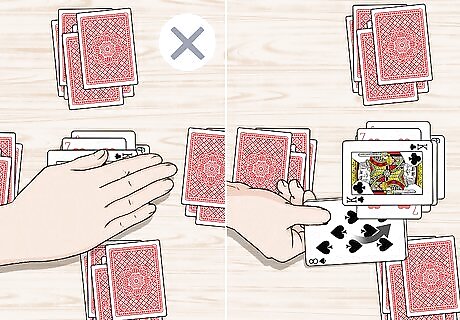
You must add one or two cards to the bottom of the pile if you slap the pile and it was not slap-able. This is called "burning cards" and voids the top bottom slap, since it changes the first card in the set. If you have no cards and you slap at the wrong time, then you are out of the game for good (unless you are playing by modified rules, such as allowing players to lend cards to each other).
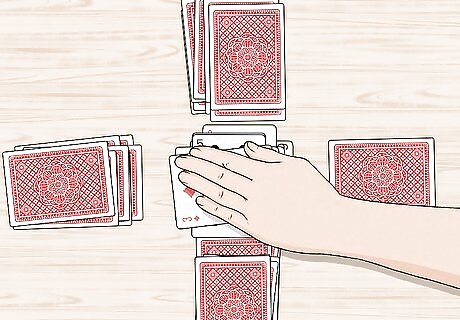
Continue playing even if you have run out of cards. So long as you don't slap at the wrong time, you are still allowed to "slap in" and get cards! Everyone should try to stay in the game until you have a single winner who obtains all the cards. This rule is usually a variant that helps prevent the game from dragging. EXPERT TIP Ashton Wu Ashton Wu Board Game Expert Ashton Wu is a Board Game expert at Shelfside. After delving into the Yugioh tournament community while growing up, Ashton launched himself into the board gaming community in 2014 and went into reviewing board games as a career full-time in 2019. His YouTube channel Shelfside has over 35K subscribers and over 4 million views, assisted by written reviews on the Shelfside website and BoardGameGeek.com. He also consults with gaming companies to build high-quality gaming products. Ashton is a tournament commentator, board game playthrough director, and host of the Shelfside Podcast, where he talks about board games with his business partner, Daniel. He received a Bachelor of Arts in Economics at the University of California, Santa Barbara, in addition to the Technology Management Certificate. Ashton Wu Ashton Wu Board Game Expert Egyptian Rat Screw is one of the most fun two-player card games. It's easy to learn and fast-paced, making it perfect for a quick and exciting game. Grab a deck of cards and challenge a friend to some friendly and harmless hand-slapping competition.
Playing with Optional Triples Rules
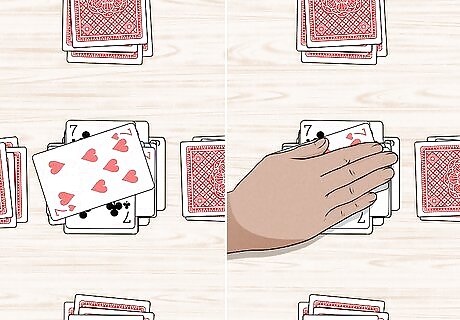
Treat triples as instant-win scenarios. In this variation, when three cards of the same type are played in a row (777, QQQ, etc.) the first player to slap instantly wins the game, even if they had no cards before slapping! Note that this is exceedingly rare - for this to happen, the first double has to have gone unnoticed. If anyone slaps the initial double, s/he wins those cards and a triple is no longer possible, even if the next card played is the same type as those in the double.
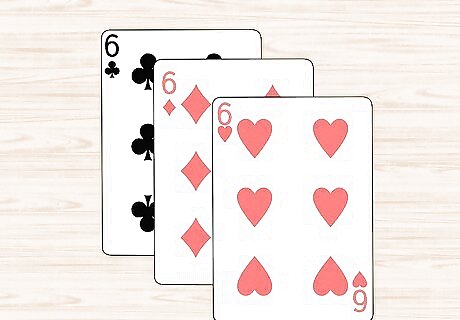
Treat triple 6's as instant-lose scenarios. For a devilish twist on the standard triples rules, use this optional variation. In this case, when a triple six is played (666), if anyone slaps it, s/he instantly loses, no matter how many cards s/he had. It's extra-tricky to remember to slap any triples except for this one, so be prepared for serious frustration! As with the normal triples described above, this one also requires the initial double to go un-slapped to be valid.
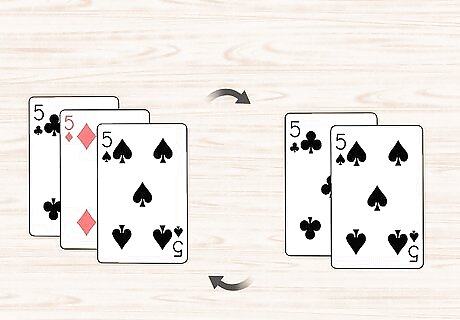
Treat triples as you would normally treat doubles. If you're not interested in playing Egyptian Rat Screw with the possibility of someone instantly winning or losing through luck, you can simply treat triples as doubles and proceed to play as you normally would, allowing players that slap triples to win the cards in the pile.












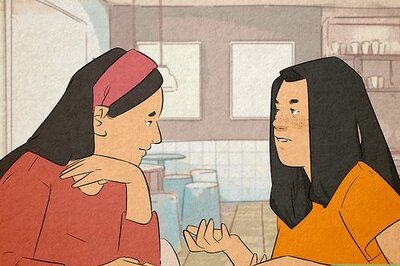






Comments
0 comment